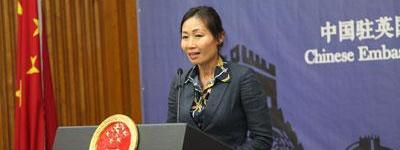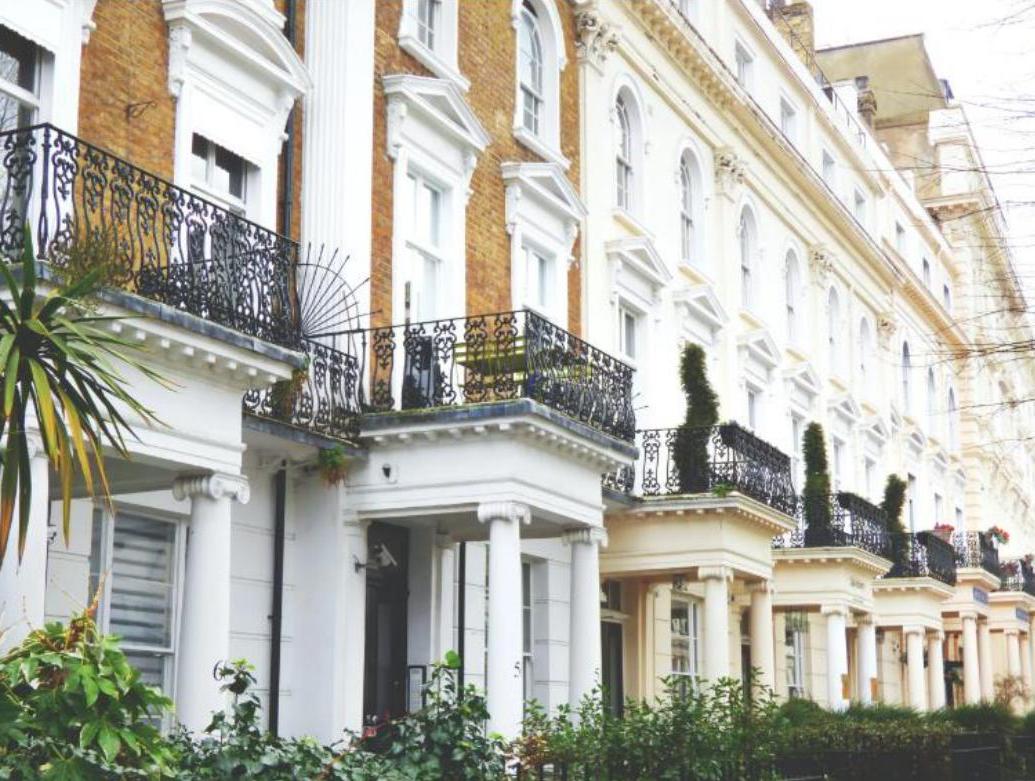Dr Xiaojiu Zhu was invited as the only Chinese speaker besides the Ambassador Liu to speak on behalf of the fellow Chinese.
I'm most grateful to be invited to this commemorative reception and honored to speak on behalf of my fellow Chinese.
Why are we marking the 70th anniversary of the two victories and why now?
The WWI started in 1914 and ended four years later. WWII broke out in just over some 20 years and lasted for 6 years, it involved vast majority of the world's nations and was the most widespread war in history resulting in an estimated 50-85 million deaths, half of them are Chinese.
The war against Japanese invasion started two years before the WWII and ended on the same day. The Chinese people suffered the longest but played a major role in ending both wars. Japanese people as we know them are polite, gentle and courteous. However, the Japanese army was ferocious. in 1937 at Nanjing they killed and buried alive over 300,000 soldiers and civilians, including 20 thousand rape cases, created the world's most shocking Nanjing Massacre. It is not only the huge number of death, but the way they killed our Chinese people, which are beyond believe.
The WWIII has been predicted but 70 years after end of WWII it has still not started. It is unlikely to happen when people who have lived through the catastrophe of it are still alive.
However they are passing away. It is therefore important to mark the 70th anniversary of the 2 victories, and it is vitally important for us, our current leaders and our young generations to remember what had happened, and safe guard the world peace.
抗战时期的张治中
There are many heroes in our war anti-Japanese invasion. My grandfather General 张治中 is one of them. He is widely known as 和平将军, general of peace, but he is considered a military legend. He served as an instructor at Huang Pu Military academy "WHAMPOA" in GuangZhou in 1926 and played a critical role in establishing the WuHan HuangPu military academy.
In January 1932, Shanghai was attacked by Japan. At the time there was only 19 路军 孤军奋战19 route army fighting alone as there was no other armies closely or willing to join. General Zhang went to see Jiang,and asked to join the battle in Shanghai. With the national pressure, Jiang agreed and formed a new 6 corps named Zhang the Commanding General. The night before the battle on 15 February, General Zhang wrote his first will "正是国家民族存亡之秋,治中身为军人,理应身赴江场荷戈奋战,保卫我神圣领土,但求马革裹尸,不愿忍辱偷生..." at the pinnacle point of the nation's survival, as a military officer, I must go to the battle ground, I'd rather die on the battle field than live without fighting for my country.
On 20th January, the Japanese army started a frontal assault. The 19th and 5th corps were fighting fiercely side by side. On 21th January; General Zhang ordered 88 师division and 528 团 regiment to raid the front line. After 2 days of fighting the Japanese soldiers were tired and did not expect the attack. They suffered heavy casualties. 庙行大捷 The temple battle the Chinese army killed over 3000 Japanese and wiped out its elite troops. Chinese and foreign newspapers reported that the battle was the pinnacle of the war against Japanese aggression.
In Feb 1936, Nanjing government divided China into a few defense regions to prepare for the possible Japanese attack. General Zhang was the commander for 京沪Beijing and shanghai area. To prepare for the battle he selected officers from Central Military Academy to meet regularly. He ordered them not to correspond anything being discussed. The elite officers discussed the strategies against the possible Japanese large scale invasion, considered the political, economical and geographical factors. Later the meeting room was moved to 苏州留园and outside hang the door plate "中央军校野营办事处" "office for central military school's camp". General Zhang organized many meetings for this think tank and recalled later that none of the outsiders knew what was going on in this room which had made preparations for anti-Japanese war. The group continued the meetings until the battle of "八一三".
In 1937 when General Zhang heard the news of Marco polo bridge incident 卢沟桥事变, he was recuperating in Qingdao. He ignored the doctor's advice and went to Nanjing to see Jiangjieshi. The next day, he was named the Commander in Chief of the 3rd War Asia "京沪警备司令官".
On 11 August, Japanese navy moved into Huangpu River, ready to land at many ports along the river. General Zhang quickly moved the army overnight from Suzhou and Wuxi to shanghai. In the morning, the local residents woke up and saw Chinese army everywhere. They asked where they came from and how could they have moved so fast. This is all due to the careful preplanning to control the trains and buses in the areas. General Zhang quickly arranged the armies to occupy the key positions in Shanghai. He then immediately asked Nanjing for the order to attack. He believed a fast and surprised attack would achieve a quicker victory. However, the US and UK governments were against the attack in shanghai. They suggested making shanghai a non-defense city, a free port. Nanjing hesitated and the critical moment was lost as Japan had time to send in the re-enforcement. On 13 August, Japan started bombing and attacking Shanghai, the start of the "八一三". 淞沪战。Later he led the 9th army corps on the battlefield for 40 days, he was loved by his soldiers as he insisted on eating and sleeping with them. He travelled between battle fields and was so exhausted often needed to be carried. Due to the internal politics, he was forced to retire from the Commander position.
Later my grandfather said that that "我是个军人 I am a military personnel but I consider myself an educator教官as I have chosen to spend more time teaching than fighting in battlefields". Both my parents were teaching at Tianjin University. They now live in Los Angels, my mother is very active in organising community activities. In 2010 she organized a Chinese float to participate in the popular annual New Year's Day Pasadena Rose Parade in the US. It was the first time that a Chinese float to participate. The proposal was initially opposed by many local Americans as they argue about China's human rights issue. However, when the Chinese float passed the local streets, it was one of the most popular float. the local people loved it and wanted to know more of Chinese culture.
To mark the 70th anniversary of the 2 victories, my mother initiated and orchestrated 黄河大合唱 the chorus of the yellow river, the concert brought together over 400 singers from 12 different local chorus including a youth one of 60 children. Both the director and baritone廖昌永were well known and especially invited from China. It performed on 1st august to over 2000 audiences with great success. [Mum first shot] Others followed, the concert of the Chorus of the Yellow River will be staged in Chicago, Australia and even in London organized by the Chinese London Philharmonic Orchestra to be staged on 13 Sep. My mum was pleased when she heard from the organizer that we both will be participating.
There are other events to mark the 70th anniversary of the 2 victories, Dr Chan's the Promotion of China Reunification Society in UK will have a reception on 16 Aug and the UK dance and culture association will put up a dance and singing performance on 20 Sep. I have been invited to be an organizer and have arranged for 60 children and adults from our London Mandarin School to attend. As a practicing solicitor I believe the law and order are important in our modern life. However the education is just as or even more important, to keep peace. Participating in this performance will make children more aware of the history, build the team spirit and increase their confidence.
We believe that there are 3 'don't forget' 3不忘, 1) we should not forget the history as it reminds us the catastrophes of a war can bring, 2) we should not forget our country we overseas Chinese are working hard to establish ourselves in this country. We shall not forget that we are Chinese, and 3) we must remind our children not to forget the Chinese culture.
We overseas Chinese all believe it is significant and timely to mark the 70th anniversary of the 2 victories. 70 years ago Japan lost the war, 70 years later Japan shall not lost its conscience to face the history and also decide on its position regarding the 钓鱼岛。
My grandfather's wish is to have a united China. Let's "remember history, commemorate the matures, cherish peace and look to the future." 铭记历史,珍爱和平,纪念胜利,为祖国和平统一而奋斗!




